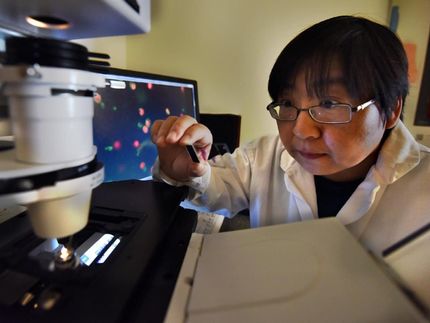The Crowded Field of VEGF and VEGF-R Targeting Drugs
The Business Intelligence firm La Merie S.L. reported that the versatility of the validated VEGF and VEGF-R target and its tractability for all kinds of drug classes has filled the pipeline of VEGF agonists, VEGF/VEGF-R antagonists and VEGF-R tyrosine kinase (tk) inhibitors. Apart from antibody-based constructs and novel binding proteins, other technologies such as small molecules, vaccines, proteins,peptides, gene therapy and RNAi make use of the validated target in markets with growing attractivity. Competitor projects are in all stages of development. These results and more were found in a competitor analysis conducted by La Merie Business Intelligence.
At least seven gene therapy approaches for expression of VEGF are in clinical development to induce neovascularization in cardiovascular and neurological indications. The most advanced projects are in mid-stage development and preclinical followers are about to enter the clinic. Protein approaches to deliver VEGF are preferred for wound healing and erectile dysfunction.
Pegaptanib sodium has been the first approved anti-VEGF drug for treatment of wet age-related macular degeneration (AMD), closely followed by the antibody fragment ranibizumab. Although sales of pegaptanib suffer from off-label use of the anti-VEGF antibody Avastin, at least four clinical stage and six preclinical stage VEGF- and VEGF-R antagonist projects are in the pipeline. The competitor projects are small interfering RNA molecules, DNA, fusion proteins and small molecules and include improved delivery formats such us sub-tenon injections or application as eye drops. Apart from wet AMD other ophthalmologic diseases are in development for VEGF-antagonists to expand the clinical label.
Avastin sales by Genentech and Roche in the first half-year of 2006 were US$ 1.13 bln, 119 % higher than in the corresponding period of 2005, thus representing a rapidly growing blockbuster market. Clinical stage competitors include antibodies and binding proteins targeting the VEGF receptors, and fusion proteins, soluble receptor proteins and RNA targeting VEGF as well as small molecules suppressing VEGF synthesis. Further at least 14 projects consist of products originating from technologies such as vaccines, peptides, proteins, siRNA, DNA and antibody-based constructs. However, the vast majority of competitors for Avastin in oncology are VEGF-receptor tyrosine kinase (tk) inhibitors. More than 30 small molecule VEGF-R-inhibitors including selective, dual- and multi-tk inhibitors are in development, 27 of them in clinical stages.
Most read news
Other news from the department business & finance

Get the life science industry in your inbox
By submitting this form you agree that LUMITOS AG will send you the newsletter(s) selected above by email. Your data will not be passed on to third parties. Your data will be stored and processed in accordance with our data protection regulations. LUMITOS may contact you by email for the purpose of advertising or market and opinion surveys. You can revoke your consent at any time without giving reasons to LUMITOS AG, Ernst-Augustin-Str. 2, 12489 Berlin, Germany or by e-mail at revoke@lumitos.com with effect for the future. In addition, each email contains a link to unsubscribe from the corresponding newsletter.
Most read news
More news from our other portals
See the theme worlds for related content
Topic world Antibodies
Antibodies are specialized molecules of our immune system that can specifically recognize and neutralize pathogens or foreign substances. Antibody research in biotech and pharma has recognized this natural defense potential and is working intensively to make it therapeutically useful. From monoclonal antibodies used against cancer or autoimmune diseases to antibody-drug conjugates that specifically transport drugs to disease cells - the possibilities are enormous

Topic world Antibodies
Antibodies are specialized molecules of our immune system that can specifically recognize and neutralize pathogens or foreign substances. Antibody research in biotech and pharma has recognized this natural defense potential and is working intensively to make it therapeutically useful. From monoclonal antibodies used against cancer or autoimmune diseases to antibody-drug conjugates that specifically transport drugs to disease cells - the possibilities are enormous
Topic world Gene therapy
Genetic diseases once considered untreatable are now at the center of innovative therapeutic approaches. Research and development of gene therapies in biotech and pharma aim to directly correct or replace defective or missing genes to combat disease at the molecular level. This revolutionary approach promises not only to treat symptoms, but to eliminate the cause of the disease itself.

Topic world Gene therapy
Genetic diseases once considered untreatable are now at the center of innovative therapeutic approaches. Research and development of gene therapies in biotech and pharma aim to directly correct or replace defective or missing genes to combat disease at the molecular level. This revolutionary approach promises not only to treat symptoms, but to eliminate the cause of the disease itself.




















































